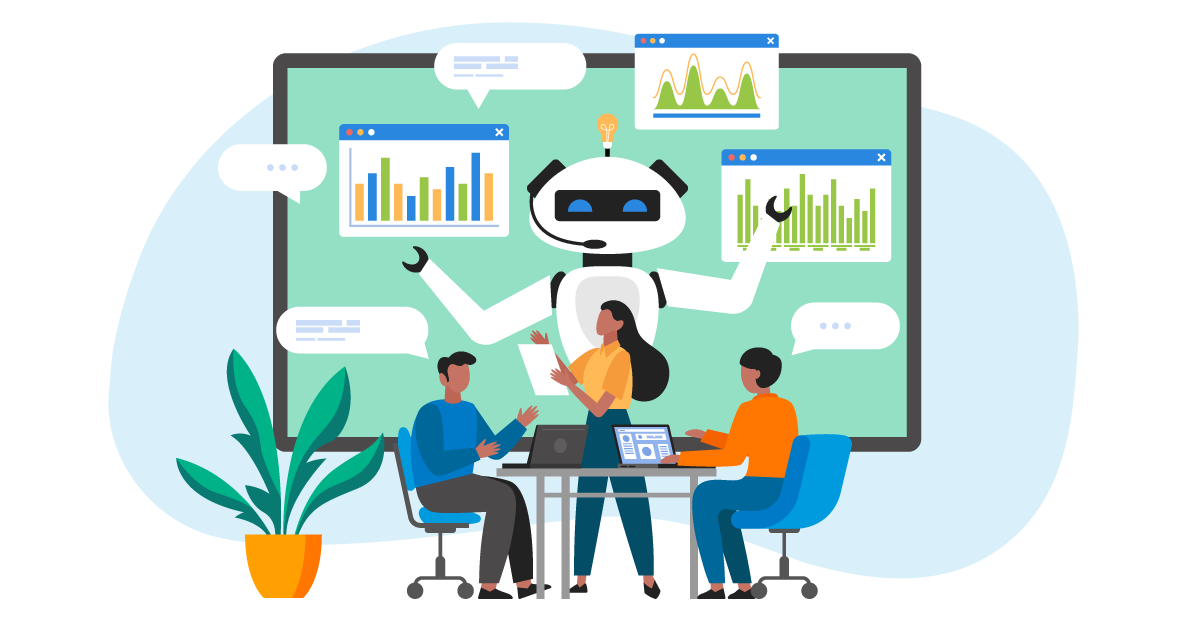The AI-Powered Workplace Evolution: Redefining the Business Landscape
Reeves Davis, President, Technology Solutions, JLL

In today's rapidly evolving business environment, the fusion of Artificial Intelligence (AI) and Workplace Management is revolutionizing the way organizations approach workspace optimization and operational efficiency. This symbiotic relationship between cutting-edge technology and traditional workplace management practices is not just a trend but a transformative force reshaping how we interact with our work environments.
The Promise of AI in Workplace Management
Artificial Intelligence, with its ability to process vast amounts of data, recognize patterns, and make predictive analyses, offers unprecedented opportunities for enhancing workplace management. From predictive maintenance to space utilization optimization, AI is proving to be an invaluable tool for workplace managers worldwide.
One of the most significant advantages is its capacity for predictive maintenance. By analyzing data from sensors and historical maintenance records, AI systems can anticipate when equipment is likely to fail, allowing for preemptive repairs and minimizing costly downtime. This proactive approach not only saves money but also ensures a smoother, more reliable operation of building systems.
Space utilization is another area where AI is making substantial inroads. By analyzing occupancy patterns, foot traffic, and workspace usage data, AI can provide insights that help organizations optimize their real estate footprint. This capability is particularly crucial in the post-pandemic era, where hybrid work models have become the norm, and companies are reassessing their space requirements.
Energy management is yet another domain where AI shines. Intelligent systems can adjust lighting, heating, and cooling based on occupancy and external factors, leading to significant energy savings and a reduced carbon footprint. This not only contributes to sustainability goals but also results in tangible cost reductions for organizations.
JLL's AI Capabilities: Transforming Workplace Management
Jones Lang LaSalle (JLL), a global leader in real estate services, has been at the forefront of integrating AI into workplace management, offering cutting-edge solutions that drive value for clients. Here's how the company is reshaping the workplace landscape:
- Automating Knowledge Capture. JLL's AI systems excel at unlocking novel insights to unique business challenges. By making data more accessible and encouraging widespread data use, these systems accelerate the identification of opportunities and risks. This capability increases the speed and quality of decisions, enabling creative exploration at scale and fostering greater collective intelligence within organizations.
- Actuating Intelligence. JLL's AI solutions enhance agility by rapidly transforming insights into operational actions. They contextually align strategic insights across the Commercial Real Estate (CRE) value chain, bridging the gap between insights and actions to ensure swift responses to new challenges. AI agents enhance human performance by providing contextual insights for smarter decision-making and autonomously executing tasks using advanced analytics.
- Reducing Time to Serve. JLL's AI capabilities significantly speed up decision-making, enabling faster solutions to real estate challenges. By eliminating inefficiencies and enhancing accuracy, these systems expedite project timelines and service speed. They provide real-time workplace insights, allowing for on-the-fly adjustments and enabling agile portfolio adjustments that reduce responsiveness lag.
- Reducing Cost of Service . AI's impact on cost reduction is substantial. JLL's AI solutions lower operational costs by reducing resource needs and errors. They cut analysis and administrative costs through automation and reduce budget overruns by optimizing management efficiency. These systems improve budget adherence, minimize costly missteps, and lower energy and resource costs, driving sustainability.
The Human Element: AI as an Enabler, Not a Replacement
While the benefits of AI in workplace management are clear, it's crucial to understand that AI is not meant to replace human expertise but to enhance it. Workplace managers and real estate professionals bring invaluable experience, intuition, and context that AI cannot replicate. The most successful implementations of AI in workplace management are those that strike a balance between technological capabilities and human insight.
JLL's approach to AI implementation emphasizes this human-centric philosophy. The company designs its AI systems to augment the capabilities of workplace management professionals, not replace them. The combination of AI-driven insights and human expertise allows JLL to deliver superior results for its clients.
The Future of AI in Workplace Management
As AI technology continues to evolve, its applications in workplace management are expected to become even more sophisticated. We're likely to see increased integration of AI with other emerging technologies such as the Internet of Things (IoT), augmented reality, and digital twins. This convergence will enable even more precise control and optimization of building systems and spaces.
Moreover, as AI systems become more advanced, they'll be able to handle increasingly complex tasks. For example, we might see AI-powered robots taking on more workplace maintenance tasks, or AI systems that can automatically adjust building layouts based on changing work patterns. Conclusion: Embracing AI for Strategic Advantage The integration of AI into workplace management represents a significant opportunity for organizations to drive efficiency, reduce costs, and enhance the workplace experience. JLL's AI capabilities demonstrate how this technology can deliver tangible benefits in knowledge capture, intelligence actuation, service speed, and cost reduction.
As we look to the future, it's clear that AI will play an increasingly important role in shaping the workplaces of tomorrow. Organizations that embrace this technology today will be well-positioned to thrive in an ever-changing business landscape, creating work environments that are not just efficient and cost-effective, but also more sustainable, adaptable, and attuned to the needs of their occupants.
By leveraging AI in workplace management, companies can unlock new levels of operational efficiency, make more informed decisions, and create workspaces that truly support their business objectives. As JLL continues to innovate in this space, we can expect to see even more transformative applications of AI in the world of workplace management, further redefining the workplace landscape for years to come.
Discover how JLL's AI-powered workplace solutions can optimize your office environment, boost productivity, and drive sustainable growth - contact our experts today to start your smart office journey at https://www.jllt.com/.
This Week’s Sponsor
JLL Technology Solutions empowers organizations to lead in the evolving CRE landscape. Combining a century of real estate expertise with cutting-edge technology, we help clients tackle complex workplace, portfolio, and sustainability challenges. Our comprehensive suite of solutions - from IWMS implementations to AI integration - transforms how organizations manage and experience space. With unmatched CRE knowledge and tech prowess, we drive innovation, reduce complexity, and keep clients ahead in a rapidly changing industry. Learn more at jllt.com.
Read Next
 5/29/2025
5/29/2025
AI Can’t Fix Bad Data. These Ideas Can Get You on the Right Track. Real estate visionaries constantly integrate innovative technology to make their organizations more efficient.
 5/22/2025
5/22/2025
Managing Building Automation and Integration Like an Investment Portfolio What if your building automation and integration decisions were managed with the same precision, discipline, and long-term vision as Warren Buffett’s investment portfolio?
 5/15/2025
5/15/2025
Tech, Talent and Transformation: 2025 Digie Finalists Announced For 27 years, Realcomm has presented the Digie Awards to acknowledge companies, real estate projects, technologies, and individuals that have advanced the commercial real estate industry through the strategic use of technology, automation, and innovation.
 5/15/2025
5/15/2025
Empowering Space Management with Data-Driven Visualization For effective CRE space management, it’s critical to centralize lease data, maximize rental square footage (RSF), improve energy efficiency and reconfigure spaces to meet changing needs.


%20(1)%20(1)%20(1).png)











